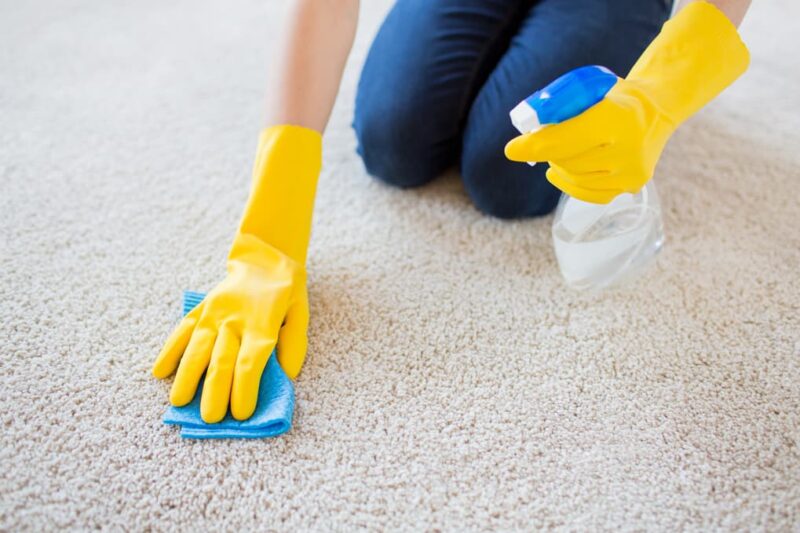Cleaning your carpet should leave it fresh and inviting, but it’s frustrating when it ends up smelling worse than before. If you’ve ever shampooed your carpet only to be met with a foul, sour smell afterward, you’re not alone.
This common issue can arise from several factors, including over-wetting, water damage, pet odors, and urine. Let’s delve into the primary causes of post-cleaning odors and explore effective solutions to get your carpet smelling fresh again.
Common Causes of Carpet Odor After Cleaning
Over-Wetting
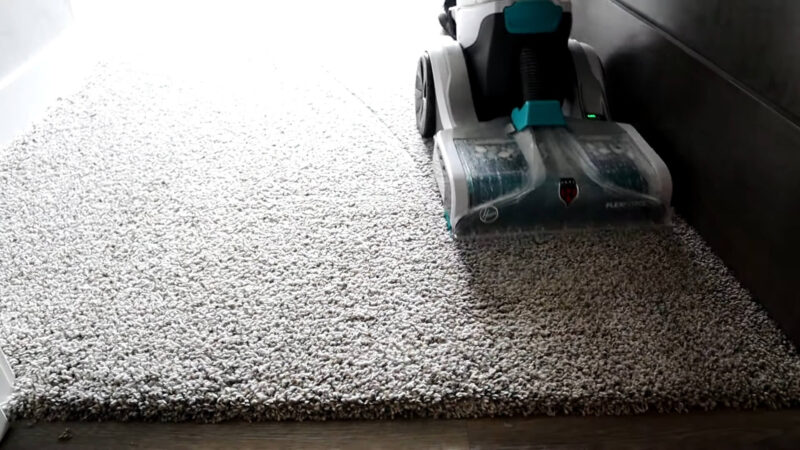
One of the main reasons carpets smell after cleaning is over-wetting. Carpets can absorb a lot of water, especially if the cleaning process isn’t managed properly. When too much water is left in the carpet, it can create a breeding ground for mold and mildew, which emit a musty odor.
- Hot Water Extraction: This method, also known as steam cleaning, is the gold standard for carpet cleaning. It involves injecting hot water and cleaning solution into the carpet and then extracting it with a powerful vacuum. However, if not done correctly, it can leave the carpet overly wet.
Poor Equipment
Using old, weak, or cheap equipment can also lead to insufficient water extraction, leaving your carpet damp. Rental machines are often less effective than professional-grade equipment. While they might save you money upfront, they can cost you more in the long run by not thoroughly drying your carpet, thus leading to odor problems.
Pet Odor and Urine
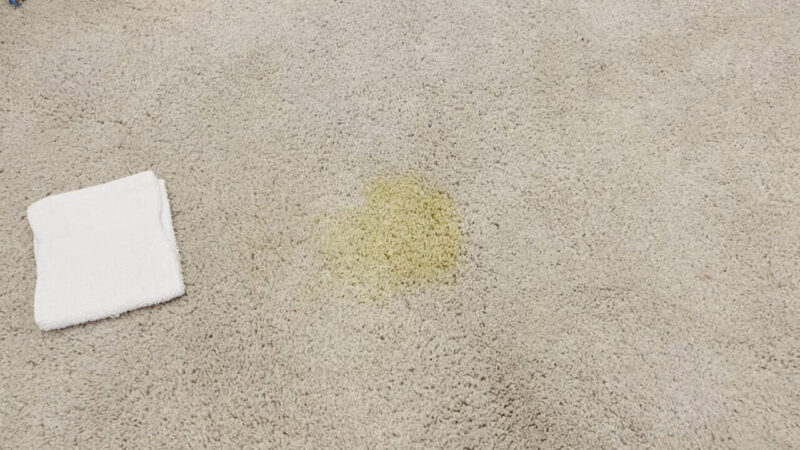
Pet urine is a notorious culprit for lingering odors. Even if you don’t have pets, previous owners might have left behind stains that resurface when the carpet is cleaned. Urine can seep deep into the carpet fibers and padding, and when the carpet is cleaned, the moisture reactivates the urine crystals, releasing a foul smell.
Identifying the Problem Area
To effectively tackle odors, you first need to identify the problem areas. Here’s how you can do it:
- Using a Black Light: A black light can help locate urine stains that aren’t visible to the naked eye. In a dark room, shine the light over your carpet, and any urine spots will glow, making it easier to target those areas.
Effective Solutions to Eliminate Odor
Use Enzyme Cleaners
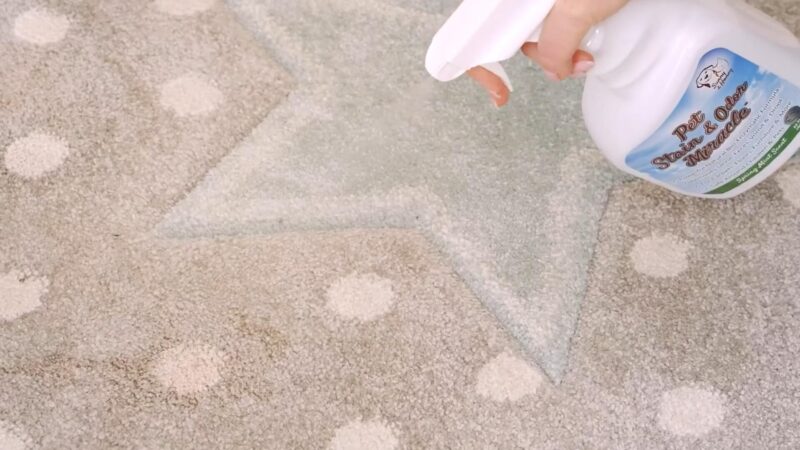
Enzyme cleaners are designed specifically to break down the organic compounds found in urine. These cleaners contain natural enzymes that digest the ammonia and bacteria, neutralizing the odor.
How to Use Enzyme Cleaners
- Apply the Cleaner: Spray the enzyme cleaner generously over the affected area.
- Let It Sit: Allow the cleaner to sit for at least 10-15 minutes to let the enzymes work.
- Blot the Area: Use a clean, dry cloth to blot the cleaner and urine residue. Avoid rubbing to prevent spreading the stain.
- Rinse with Water: Lightly rinse the area with water to remove any remaining cleaner.
- Dry Thoroughly: Ensure the carpet dries completely to prevent mold growth.
Dry the Carpet Thoroughly
Proper drying is crucial to prevent microbial growth that causes musty smells. The drying process typically takes half a day but can vary based on the carpet type and weather conditions.
Tips for Drying Your Carpet
- Use Fans and Carpet Grooming: Professional cleaning services often use fans to speed up drying. Carpet grooming helps lift the fibers, allowing air to circulate.
- Improve Airflow: Open windows to improve ventilation if the weather is nice. This helps the carpet dry faster.
- Use HVAC System: Turn on the fan of your HVAC system. During summer, use the air conditioner; in winter, use the heater to help circulate air.
- Utilize Space Heaters: If drying needs to be sped up, use space heaters to help evaporate the moisture.
Dealing with Persistent Odors
If you’ve tried these methods and your carpet still smells, it might be time to call in the professionals. Carpet cleaning companies have specialized equipment and products designed to handle tough odors and deep-seated stains.
Professional Services
Professional carpet cleaners use high-powered machines and advanced techniques to ensure thorough cleaning and drying. They can handle stubborn stains like pet urine, coffee, and vomit more effectively than DIY methods. Hiring professionals might be more expensive initially, but it saves you from the ongoing hassle of dealing with persistent odors.
Preventive Measures
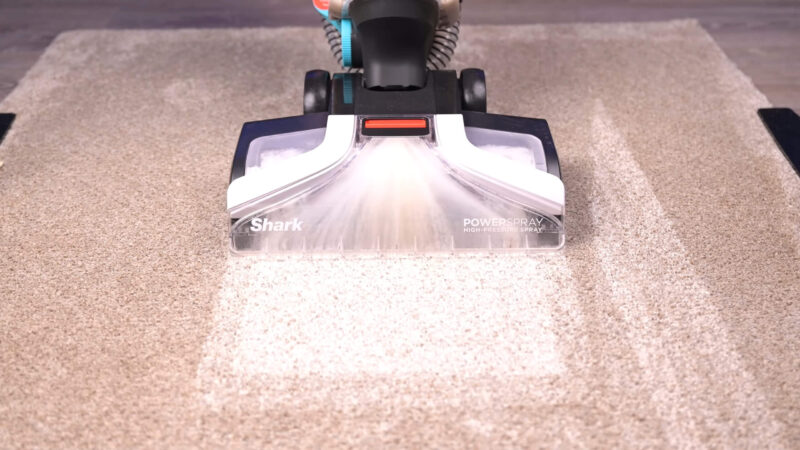
To avoid encountering the same problem in the future, consider these preventive measures:
- Regular Maintenance: Regular vacuuming and cleaning can prevent dirt and stains from settling deep into the carpet fibers.
- Immediate Action: Address spills and accidents immediately. The longer they sit, the harder they are to remove.
- Quality Equipment: Invest in or rent high-quality cleaning equipment if you prefer DIY cleaning. Ensure the equipment is effective at extracting water.
- Professional Cleaning: Schedule professional carpet cleaning at least once a year to maintain your carpet’s health and appearance.
Common Mistakes to Avoid
- Using Bleach: Bleach can damage carpet fibers and doesn’t effectively neutralize urine odor. Avoid using bleach for carpet cleaning.
- Skipping Enzyme Cleaners: Regular shampoos and detergents aren’t effective against urine. Always use enzyme-based cleaners for pet stains.
- Not Drying Properly: Leaving the carpet damp can lead to mold and mildew. Always ensure your carpet is thoroughly dried after cleaning.
Conclusion
Dealing with a smelly carpet after cleaning can be frustrating, but understanding the causes and knowing how to address them can make a big difference. Use enzyme cleaners, ensure thorough drying, and consider professional help if needed. Regular maintenance and immediate action on spills can help keep your carpet smelling fresh and clean. By following these steps, you can enjoy a clean, odor-free home.

